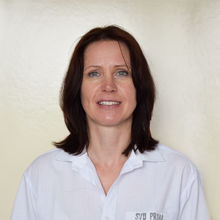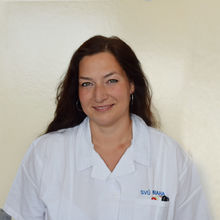Respiratory disease in pigs results from a combination of viral and bacterial agents together with environmental factors that reflect the quality of management and housing conditions. It affects pig health, reduces performance, increases treatment costs and increases mortality.
Description
Diagnosis of bacterial respiratory pathogens in pigs includes detection of all hypothetical bacterial pathogens, including possible culture and PCR detection of mycoplasma. Molecular genetic serotyping of Actinobacillus pleuropneumoniae is also performed on request.
Diagnosis is based on microbiological culture of individual parts of the respiratory tract of pigs or their swabs on Amies transport medium. The pathogens are then identified by MALDI-TOF or molecular genetic methods (PCR). The identified pathogens are also tested for their susceptibility to antimicrobial agents. Advice on antimicrobial therapy is an integral part of our service.
The main bacterial agents, acting alone or in combination include:
- Mycoplasma hyopneumoniae
- Haemophilus parasuis
- Streptococcus suis
- Bordetella bronchiseptica
- Actinobacillus suis
- Actinobacillus pleuropneumoniae
- Pasteurella multocida
- Mycoplasma hyorhinis
- Trueperella (Arcanobacterium) pyogenes
The main viral agents include PRRS virus, swine influenza virus, porcine circovirus type 2, porcine respiratory coronavirus and Aujeszky's disease virus.



Download
| Typ souboru | Název | Velikost | |
|---|---|---|---|
| General application form | 0,4 MB | Stáhnout | |
| General application form | 0,1 MB | Stáhnout |
FAQ
It is not. At present, this test is only carried out on the basis of a direct order from the client. This is due to the cost of the PCR test and the longer culture time for mycoplasma.
It is not. At present, this testing is only done on direct request from the client. This is due to the cost of the PCR test.



